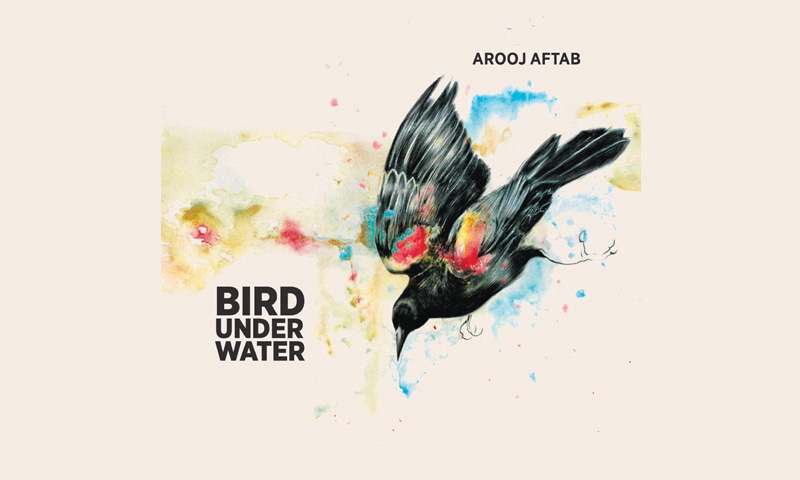When the internet first hit Pakistan about a decade and a half ago, one of the first industries to be radically and irrevocably changed by its advent was the music industry. One of the biggest stars of the underground-and-online scene was Arooj Aftab, who first rose to prominence from her breathy, delicate covers of some sub-continental classics. Indeed, so influential were her songs that her style became an almost generic version of how many female vocalists in the underground scene at that time would sing.
The Lahori musician studied studied music production/engineering and composition at Berklee College of Music and then moved to New York, where she worked as a sound editor and composer. Near the end of 2014, she released her album Bird Under Water, a long-awaited and well-received work that marks a considerable evolution of her musical style. Situated within the parameters of eastern classical music and culture, it is marked by a kaleidoscope of delicate yet intricate musical accents. I had a chance to speak to her about the album via email, and the following is a summary of what she said, in her own words.
“I always felt drawn to music and its special powers. It felt healing to me, and aided my spirituality and my imagination, so I let it lead me.
“I unofficially released a few songs while studying at Berklee about seven years ago — Bolo na, Tere bina, Udhero na and Tera junoon. Each of these had an academic songwriter vibe; solidly arranged in the pop idiom with verses, a bridge, a hook solo, repeat – bam! The instrumentation was straightforward but played well with innovation. It was like intelligent pop, and it was so essential, to be able to write music and lyrics, to learn how to collaborate and co-write with other musicians, each with their own unique sounds and styles and personalities.
The underground musician who went missing from the scene many years ago recently resurfaced with a new album
“Four years ago I moved from Boston to New York and started working small gigs as a sound editor and music composer for film. Shortly before leaving, I started collaborating with two awesome musician friends, Bhrigu Sahni and Jorn Bielfeldt. A combination of missing home and a desire to deepen my music sensibilities led me to start seriously researching and listening to themes from the South Asian classical realms of khayal, thumri, kafi.
 |
“When I produce music it’s very visual for me. I wanted all the instruments including the voice to come across as one unified sound, so consequently things are blending a lot. The guitar; the accordion; the long epic cymbal hits. The song formations are quite unconventional, and sometimes there isn’t a vocal line for a long time during the process. My emphasis on composing complex melodies within a minimalist structure ties in with Bhrigu Sahni’s ability to write guitar parts in an impeccably complimentary fashion. His chord structures and open tunings really lend themselves to the vibe I was looking for. The upright-bass player Mario Carrillo was incredible as well. I used the sounds of the bow with muted strings, and a lot of electronic drones created from his pedals as a bed for the songs, taking us into that insanely deep and haunting world, into the belly of the song.
“I used the layers of voices and also layered the accordion player Magda Giannikou, who is a hypnotic master player. I wanted the accordion sound to hint at the harmonium, but not be so obvious in its sound, so I put her through filters and delays to achieve that effect. It was the same with Sonny Singh’s trumpet parts. I put all of us (our layers and harmonies and parts) in peculiar places amidst the sonic stereo spectrum and automated a ton of panning so we are moving around through the songs from left, to mid centre, back, right etc. I wanted to give the listener the illusion that they are surrounded or submerged ‘in’ the music, and it should inspire you to imagine your own story.
“The idea behind having all the musicians and instruments sound unified yet distinct arose from one of the central experiences of Sufism; the ‘oneness of being’. As for young musicians, be innovative, have courage and take risks to achieve the things you really want. Share your creativity — collaborate. No one ever did anything great alone.”
Published in Dawn, Sunday Magazine, February 1st, 2015
On a mobile phone? Get the Dawn Mobile App: Apple Store | Google Play














































Dear visitor, the comments section is undergoing an overhaul and will return soon.